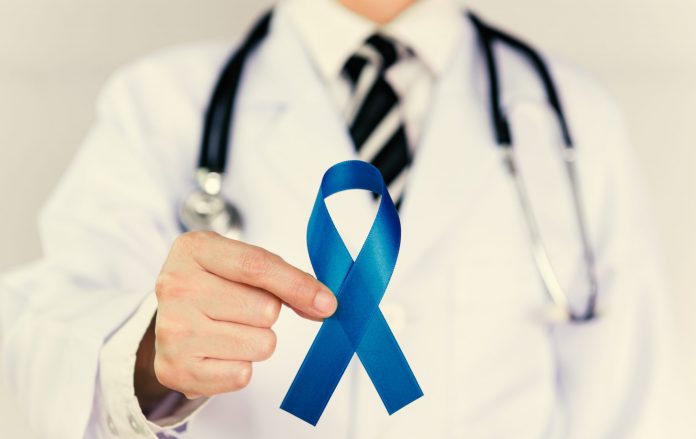As seen in the December issue of Retail Pharmacy magazine.
Bowel cancer is the third most commonly diagnosed cancer in Australia and the second leading cause of cancer-related death, but early detection through screening can help save lives.
Often developing without any symptoms, cancer in the bowel can grow for years before spreading to other parts of the body. Tiny amounts of blood can leak from these growths and pass into the faeces. Bowel screening can detect this blood.
Through the National Bowel Cancer Screening Program (NBCSP), a test is offered to the target population group: those aged 50 to 74.
Eligible participants are sent a letter in the mail, inviting them to screen at age 50, then every two years until they turn 74.
“The good news is that 99 per cent of bowel cancer cases can be successfully treated if found early, yet unfortunately, fewer than 50 per cent are detected early,” Bowel Cancer Australia (BCA) National Community Engagement Manager Claire Annear said.
Disturbing recent statistics reveal that around 10 per cent of all new bowel cancer cases occur in people under the age of 50.
“We need to find answers as to why the rate of diagnoses and deaths in younger people is on the rise,” Ms Annear said.
In response to the rising rates of the disease in younger people, BCA has been raising funds this year for young-onset bowel cancer research, and to build a path towards a cure.
BCA is a 100 per cent community-funded national charity dedicated to prevention, early diagnosis, research, quality treatment and the best care for everyone affected by bowel cancer.
Ms Annear says the campaign that was initially launched as ‘Decembeard’, now in its 10th year, has been expanded to include ‘Decembhair’ with not only the growing of beards being encouraged for raising bowel cancer awareness and funds but also that of hair on the head and body.
The Decembeard/Decembhair theme is: “Face, head, legs, body – if it’s hair – let it grow or let it go!”
“The campaign was created as a fun and quirky way to draw attention to Australia’s second deadliest cancer, and raise funds – helping to break the ice and start a conversation about a topic that some people can find difficult to discuss,” Ms Annear said.
“Funds raised through Decembeard/Decembhair help Bowel Cancer Australia to continue to support patients and their families. This includes the charity’s free helpline, bowel care nurses and nutritionists, national peer-to-peer support network and ‘Buddy’ program.
“Bowel care nurses act as a point of contact for bowel cancer patients and their families. They make up part of the team of expert doctors, nurses, specialists and therapists who look after a patient diagnosed with bowel cancer. The multidisciplinary team may also include clinical oncologists, colorectal surgeons and counsellors.”
Gastroenterologists, colonoscopists, surgeons and pathologists play a key role in ensuring program participants progress through the screening pathway.
A GP’s role includes reminding patients to participate in cancer screening. Results of tests are mailed to the patient and nominated GP.
According to the federal Department of Health and Aged Care, research shows that sending a letter endorsing bowel screening, signed by the patient’s GP, is an effective way to increase participation in bowel cancer screening.
Role of pharmacists
The Pharmacy Guild in its submission for review of the NBCSP, reported that Indigenous Australians found receiving a kit from a trusted health professional rather than through the mail was a more positive experience because these participants were able to understand why the test was important and how to collect the samples, and had faster return rates than the usual kit pathway participants.
BowelScreen Australia was launched nationally in 2010 as a collaboration between BCA and the Pharmacy Guild to provide greater access to bowel cancer screening through community pharmacies. Patients can buy a clinically proven and reliable faecal immunochemical test, but according to the Guild, not all pharmacies stock these tests and patients are advised to be proactive and contact their pharmacy to check their availability.
“It’s important for pharmacies to stock kits, to make them more accessible to those not eligible for the NBCSP, such as those under 50 and over 74, given rising rates of young-onset bowel cancer.”
The Guild’s submission points to the many benefits of making NBCSP test kits available at pharmacies, including increased participation rates, ease of access to kits, health professional advice, and reduced kit wastage. It notes that the involvement of community pharmacy would need to be supported by an appropriate level of remuneration to cover the time required to deliver this service.
Community pharmacy involvement in health promotion activities such as Bowel Cancer Awareness Month may also help increase participation, by raising awareness about the program, and supplying test kits to eligible patients. Pharmacists can provide face-to-face pre-test counselling to participants to explain the importance of detecting and preventing bowel cancer, and what the screening pathway involves.
The Guild’s position, outlined in its submission, is that having the bowel tests available in pharmacies can help the most vulnerable, such as transient populations, the homeless or those without a registered or updated mailing address with Medicare, while better assisting those of culturally and linguistically diverse backgrounds who may need additional face-to-face counselling.
For more about Decembeard/Decembhair and how your pharmacy can raise awareness about bowel cancer, visit: bowelcanceraustralia.org/decembeard
References:
- health.gov.au/initiatives-and-programs/national-bowel-cancer-screening-program/getting-a-bowel-screening-test/who-should-do-the-bowel-screening-test#when-you-will-be-invited
- cancer.org.au/assets/pdf/bowel-screening-research-insights-for-health-professionals#_ga=2.242925569.2009576683.1666764346-683448590.1666611477
- health.gov.au/initiatives-and-programs/national-bowel-cancer-screening-program/managing-bowel-screening-for-participants/the-role-of-health-professionals-and-providers-in-the-national-bowel-cancer-screening-program
- cancer.org.au/assets/pdf/colorectal-cancer-optimal-cancer-care-pathway
The feature was originally published in the December issue of Retail Pharmacy magazine.








